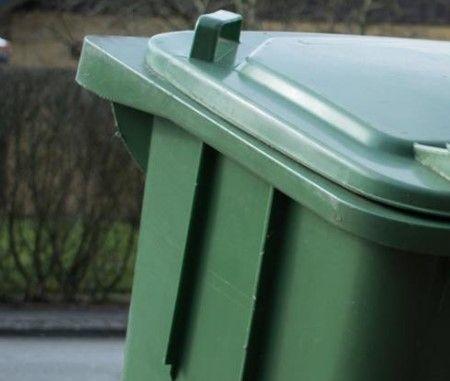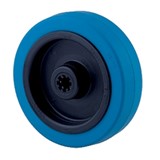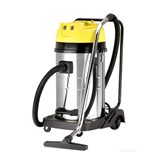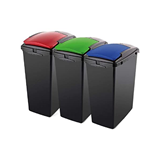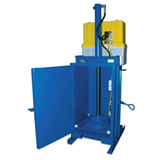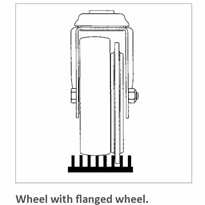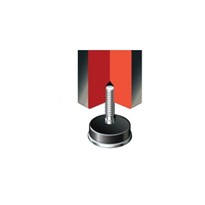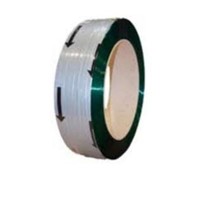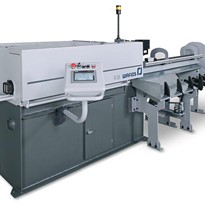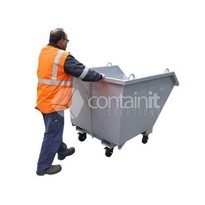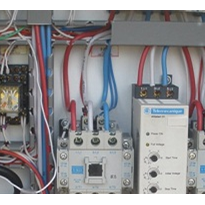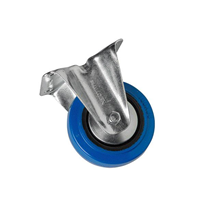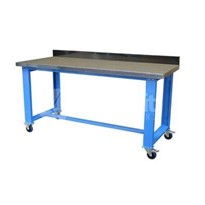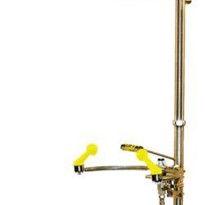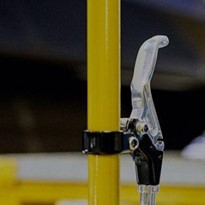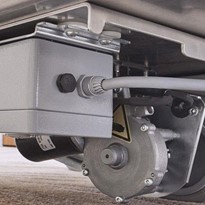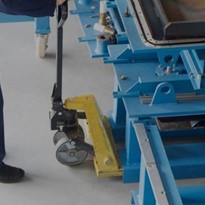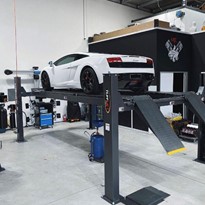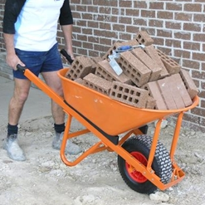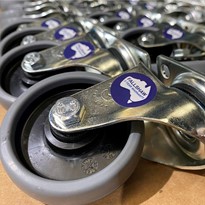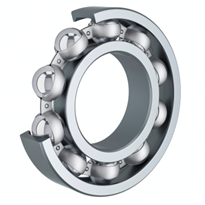This begins with packaging material and ends with kitchen waste. Once the collectors are full, they are very heavy and have to be transported to the waste container. With inferior castors on the waste collector, this will require a great deal of effort – and can even pose a health risk. When equipping waste collectors for the first time and when replacing parts later, it is therefore vitally important to choose the right castors.
Requirements for castors for waste collectors
The castors on fully loaded waste collectors must overcome high rolling resistance on the floor. An important factor for rolling resistance is the tread. A tread made of harder material, for example, offers less rolling resistance but can leave marks on the floor. The ideal castor, therefore, would combine the properties of a hard tread with a softer material, so that it runs smoothly and leaves no marks.
It is also important that the castors are easy to manoeuvre. This calls for swivel castors that can be moved in all directions. And to ensure the right level of safety and stability, locks should be fitted to the castors. The waste collector can then be quickly and easily brought to a safe standstill and locked in position.
TENTE 2477 with PJP wheel for waste collectors
TENTE 2477 castors with PJP wheels are particularly suitable for waste collectors. They have a tread made of innovative TENTEprene, a thermoplastic rubber. These castors can be pushed easily without leaving unwanted marks, even under heavy loading. The swivel castors and locks made of die-cast zinc are extremely stable and durable. Stainless steel versions of the TENTE 2477 are also available.


